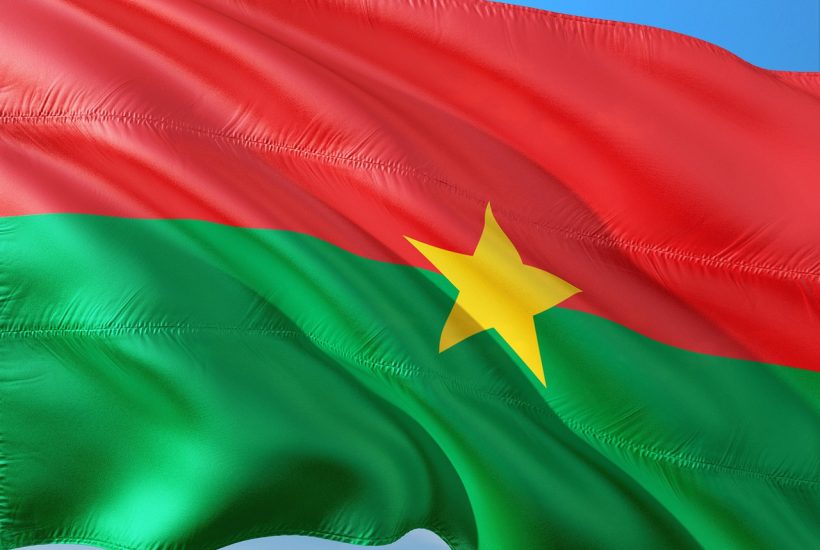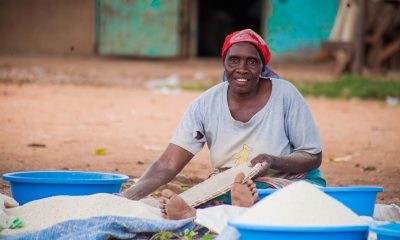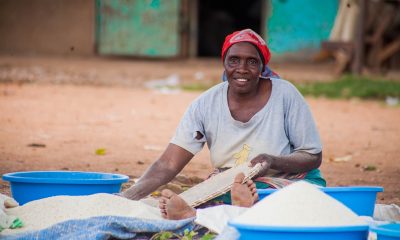Africa
AfDB and Burkina’s Government Agree on Results to Benefit the Population
The African Development Bank (AfDB) and the ministry in charge of the economy held a working session to examine in depth the mechanisms to be established to respond effectively to the needs of Burkinabè in the face of the crisis. The conference took place Friday, September 16th, 2022 in Ouagadougou, during the finalization of the Interim Country Strategy Paper (DSP-I 2022-2025). But also as part of the performance review of the AfDB portfolio in Burkina Faso.

The triple security, health, and humanitarian crisis that has shaken Burkina Faso requires initiatives to address the most urgent issues to put an end to the suffering of the population. All of which justifies this meeting between the AfDB and the transitional government, in this case, the Ministry of the Economy, Finance and Forecasting.
It emerged from the meeting that although AfDB’s project portfolio is generally satisfactory, more effort is needed to achieve the expected results. To date, the AfDB project portfolio includes 18 active projects with an estimated total value of UA 553.38 million, as well as budgetary support of UA 15 million, according to Séglaro Abel Somé, Minister of the Economy, Finance, and Forecasting. These projects are divided into various sectors, namely agriculture, energy, environment, transport, water, and sanitation.
Read more on the subject and find other important economic news from around the world with the Born2Invest mobile app.
The two areas of intervention of the DSP-I 2022-2025
Strengthening sustainable infrastructure for inclusive and green growth and supporting agricultural value chains to boost the resilience of the economy are the two main focus areas of the 2022-2025 CSP-I. “The Action Plan serving as a guide to the government’s daily action has an overall cost of about 12,000 billion CFA francs, of which about 3,000 billion are expected from our technical and financial partners,” said Minister Séglaro Abel Somé.
This funding, which is essential for the implementation of activities in line with the objectives set, will be obtained thanks to the support of the AfDB, which remains faithful to its commitments. “We have an excellent collaboration with Burkina Faso that dates back more than fifty years and that we intend to strengthen and consolidate in this transition period where the challenges are enormous,” says Daniel Ndoye, AfDB Country Manager in Burkina.
Actions to be taken to move the lines
For Mr. Ndoye, the government is making considerable efforts to define clear development strategies. As the Minister of the Economy said, despite the security and health challenges, significant efforts are being made to implement projects.
“Therefore, we need to work together to improve our procedures and accelerate the implementation of projects by speeding up procurement procedures and disbursements,” said the AfDB country manager in Burkina. Well before this meeting, the Ministry of the Economy had carried out with the AfDB, an exercise to prepare the combined report for the completion of the Country Strategy Paper (CSP) 2017-2021 in April 2021.
The African Development Bank Group began operations in Burkina Faso in 1970. Its interventions cover the development of infrastructure in the energy sector, the development of agricultural value chains, water control, support for the emergence of growth poles, the promotion of youth employment in the agribusiness sector, support for the financing of the agricultural sector, as well as the realization of opening-up infrastructure to improve the marketing of agricultural production and intra-regional trade.
The cooperation framework between the African Development Bank and Burkina Faso is defined in the Country Strategy Paper (CSP), which indicates, among other things, the sectors in which the Bank is emphasizing its interventions, in line with the country’s national development benchmark. Thus, the 2017-2021 CSP was aligned with the National Economic and Social Development Plan (PNDES 2016-2020). In the same spirit, this meeting aims primarily to ensure the consistency of the areas of intervention provided for in the new interim CSP with the orientations of the Transition Action Plan (TAP).
__
(Featured image by jorono via Pixabay)
DISCLAIMER: This article was written by a third party contributor and does not reflect the opinion of Born2Invest, its management, staff or its associates. Please review our disclaimer for more information.
This article may include forward-looking statements. These forward-looking statements generally are identified by the words “believe,” “project,” “estimate,” “become,” “plan,” “will,” and similar expressions. These forward-looking statements involve known and unknown risks as well as uncertainties, including those discussed in the following cautionary statements and elsewhere in this article and on this site. Although the Company may believe that its expectations are based on reasonable assumptions, the actual results that the Company may achieve may differ materially from any forward-looking statements, which reflect the opinions of the management of the Company only as of the date hereof. Additionally, please make sure to read these important disclosures.
First published in lefaso.net, a third-party contributor translated and adapted the article from the original. In case of discrepancy, the original will prevail.
Although we made reasonable efforts to provide accurate translations, some parts may be incorrect. Born2Invest assumes no responsibility for errors, omissions or ambiguities in the translations provided on this website. Any person or entity relying on translated content does so at their own risk. Born2Invest is not responsible for losses caused by such reliance on the accuracy or reliability of translated information. If you wish to report an error or inaccuracy in the translation, we encourage you to contact us.

-

 Business2 weeks ago
Business2 weeks agoLegal Process for Dividing Real Estate Inheritance
-

 Fintech13 hours ago
Fintech13 hours agoJPMorgan’s Data Fees Shake Fintech: PayPal Takes a Hit
-

 Fintech1 week ago
Fintech1 week agoPUMP ICO Raises Eyebrows: Cash Grab or Meme Coin Meltdown?
-

 Africa3 days ago
Africa3 days agoSurging Expenditures Widen Morocco’s Budget Deficit Despite Revenue Growth
























